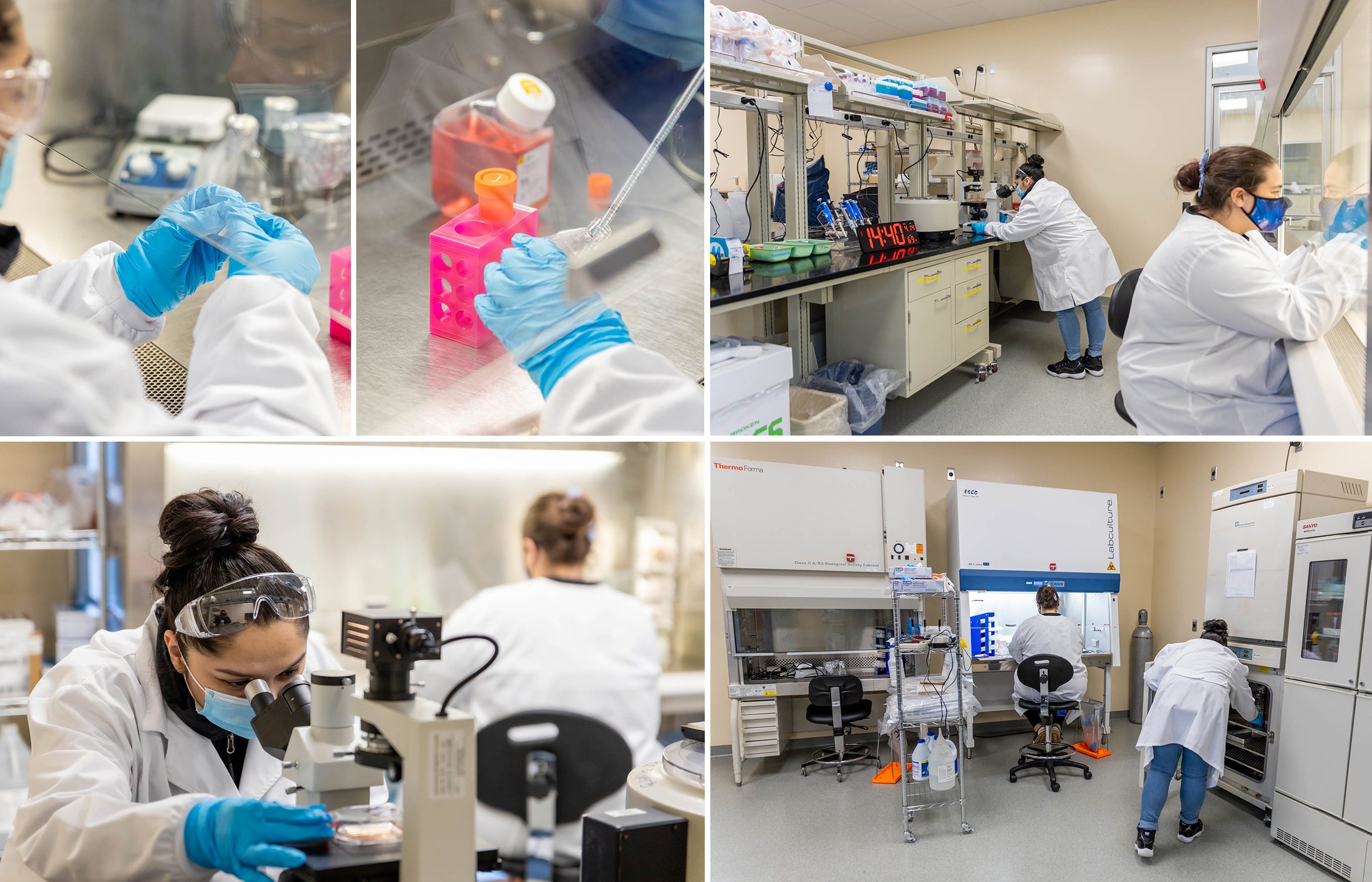
VaLogic and FCC Strengthen Partnership with Apprenticeship Program
For three years VaLogic and the Frederick Community College Biotechnology Program have worked hand-in-hand to build a partnership, including a new biotech apprenticeship program, that provides a pathway for students to gain employment in the fast-growing life sciences ecosystem in Maryland.
VaLogic, which helps life science companies implement compliance controls, recently partnered with the college to provide hands-on training for the students through the apprenticeship program, as well as a path to future employment upon graduation. The partnership extends beyond the hiring of students.
VaLogic also provides laboratory space for FCC hands-on experiments and offered their expertise and workforce to install a 2-liter bioreactor that provides the students with access to real-life wet-lab situations. Jeff Wells, Head of Corporate Development at VaLogic, said his company was able to provide the college something it had not had before, which provides a valuable resource for the students.
“We’re trying to enhance their (FCC’s) capabilities through the offering of our facilities, people, and expertise,” Wells said. “I’m really pleased with the partnership and the relationship we have with FCC.”
VaLogic has now extended its role by becoming an employer in the apprenticeship program and is supporting it. Apprentices tapped by VaLogic can work in a number of different roles. The apprentices work alongside other VaLogic employees to support environmental monitoring efforts of client companies to measure the quality of air in cleanroom environments. They can also assist with validation work, as well as regulatory documentation needs. Wells noted that if an apprentice is mechanically inclined, they could help design and build cold rooms for clients.
“We’re a small firm, and not so rigid, that our apprentices have to stick to a few tasks,” Wells said.
Wells added that documentation plays a significant role in their work and that apprentices will receive a crash course at VaLogic due to the stringent regulatory requirements. Some of the FCC students will already be well-acquainted with documentation due to stringent coursework at the college.
VaLogic, which is located within a mile of the FCC campus in Frederick County, is currently in the process of interviewing several candidates for the state-sanctioned apprentice program.
*click image to view apprenticeship benefits for students and employers
Under the agreement established by the state of Maryland, FCC can train apprentices for biotech programs who will work as instrumentation technicians, which provides multiple avenues for the students. Apprentices will work 2,000 hours for a company and receive on-the-job training. In return, they will receive a payment, including resources to support the cost associated with education. In addition to the work performed for a company like VaLogic, the apprentices are also required to maintain a minimum of 144 hours of related instruction per year.
While many biotech companies look for employees with four-year degrees, Wells said VaLogic finds significant value in having some employees with an associate’s degree. From their experience with the apprenticeship program, Wells said associate’s level students who have wanted to work in biotech have positively contributed to the company’s success. Employees with associate’s degrees fill a gap for roles that are not necessarily being taken by those who have four-year degrees, Wells said.
At VaLogic, there are many people who began working with the company with a two-year degree. Wells said several of these employees came from FCC and have continued with their education while employed and received advanced degrees. Those employees who continue their personal and professional growth while at VaLogic make for longer-term employee satisfaction, Wells said.
Because VaLogic has taken its partnership with FCC to heart with the installation of the lab, Savita Prabhakar, Program Manager of FCC Biotechnology program, said that has provided many of their students with a leg-up in training over many with four-year degrees.
“Most of the entry-level positions, even with a bachelor’s, don’t have the hands-on skills necessary for the job, so they have to be trained,” she said. At FCC, Prabhakar added their students are provided that hands-on experience through the lab space, which means they can be onboarded faster at companies. “It gives them an early look at what the industry looks like.”
“We see even a lot of applicants who have engineering degrees, but they’ve never set foot in a lab and done wet lab work. That’s the big difference here that FCC does as well,” Wells said. These students kind of know what they’re already getting into, and we know they want to be there.”
Some of the former VaLogic apprenticeship students have gone on to work for larger biotech and pharma companies in Maryland’s ecosystem. Wells said those former apprentices often end up serving as ambassadors for the company, which boosts VaLogic’s profile.
Tanner Ash, an FCC biotechnology grad and former VaLogic employee shared, “VaLogic provided me with the unique opportunity to learn many aspects of the industry in a short period of time and to grow professionally. I built long-lasting friendships and professional relationships that I am grateful for. The team and network they have built are unparalleled and I consider myself a strong ally to them as I have ventured and pursued my personal career goals throughout the industry, most recently in cell therapy. Bill Robertson and Jeff Wells always encouraged me to be my best self and I know that students taking part in this apprenticeship will benefit tremendously from this brilliant partnership.”
“We really have taken this partnership very seriously. Of course, we feel good when helping FCC and their students achieve their goals, but there’s a tangible benefit to VaLogic as well,” he said. In addition to VaLogic, the FCC Biotechnology Program is a National Institute for Innovation in Manufacturing Biopharmaceuticals (NIIMBL) grant recipient which contributes to the value of the Biotechnology Program.






